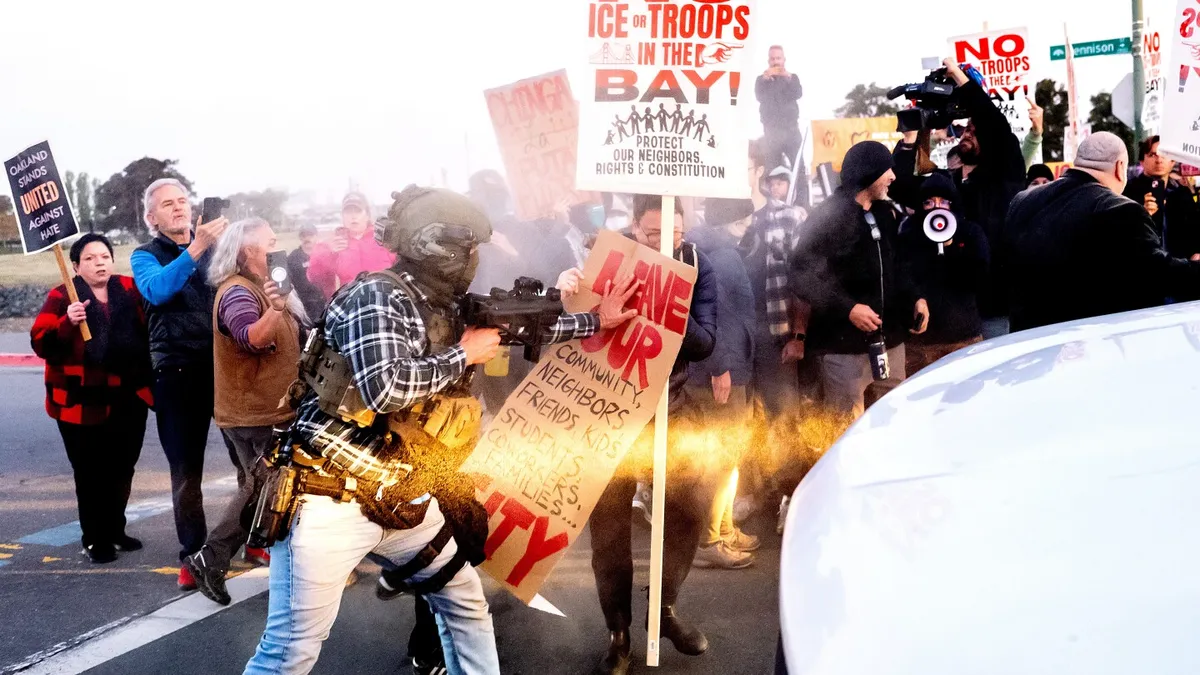
In a surprising turn of events, President Donald Trump announced on Thursday that he will not proceed with a planned surge of federal agents into San Francisco. This decision came after a conversation with Mayor Daniel Lurie, who informed the president about the city’s ongoing efforts to address crime. The announcement coincided with a significant protest outside a U.S. Coast Guard base located in Alameda, California, where federal agents were initially stationed.
In a post on social media, Trump revealed that Mayor Lurie indicated to him on Wednesday evening that the city was making "progress in reducing crime." Acknowledging this, Trump decided to allow San Francisco to continue its efforts independently. This development is significant as it reflects the impact of local governance on federal decisions, particularly in a politically charged environment.
On Thursday morning, several hundred protesters gathered at the Coast Guard base, many singing hymns and holding signs that read "No ICE or troops in the Bay," a direct reference to U.S. Immigration and Customs Enforcement (ICE). Tensions escalated when police deployed at least one flash-bang grenade to disperse some demonstrators as Customs and Border Protection (CBP) vehicles moved in. Organizers of the protest urged attendees to remain peaceful, even as Coast Guard officers monitored the situation from a distance.
Mayor Lurie confirmed on Thursday that he received a call from Trump the previous night, during which the president stated he was "calling off any plans for a federal deployment in San Francisco." Lurie added that Homeland Security Secretary Kristi Noem also reaffirmed this decision during a conversation on Thursday morning. However, it remains unclear whether this cancellation pertains to a National Guard deployment or the immigration enforcement efforts by CBP agents. Lurie’s office has not clarified this point, and a noon news conference was planned to provide more details.
The San Francisco Chronicle reported that over 100 CBP and other federal agents were anticipated to arrive in the city this week. Both Mayor Lurie and California Governor Gavin Newsom, who are Democrats, have condemned the federal deployment as a tactic intended to incite violent protests. Trump has previously announced plans to send National Guard troops to San Francisco to combat what he claims is rampant crime. However, local and state leaders have pointed to crime statistics that show many offenses are currently at record lows.
Trump's administration has deployed National Guard troops to various cities, including Washington, D.C., and Memphis, Tennessee, citing the need to combat crime. Los Angeles was the first city to see such a deployment, with Trump arguing it was essential to protect federal buildings and agents amid protests against mass immigration arrests. The president has also indicated the need for troops in Chicago and Portland, Oregon, although lawsuits from Democratic officials in those cities have temporarily halted troop movements.
Coast Guard Island, where the federal agents were stationed, is an artificial island established in 1913, with a Coast Guard base opening there in 1926. Owned by the federal government, the island is not accessible to the general public, requiring visitors to possess specific government ID cards or be escorted. The Coast Guard operates under the Department of Homeland Security, which also oversees ICE and CBP.
In conclusion, Trump's decision to retract the deployment of federal agents in San Francisco highlights the complex interplay between local governance and federal authority, particularly in the context of immigration enforcement and crime prevention. As the situation develops, the city continues its efforts to manage crime independently.